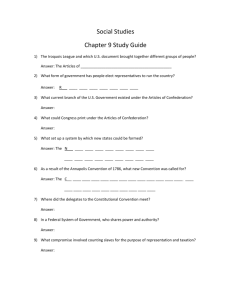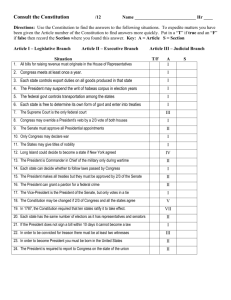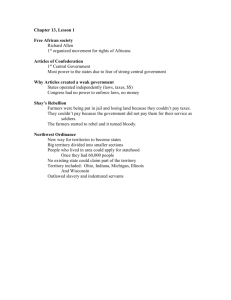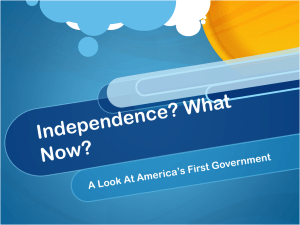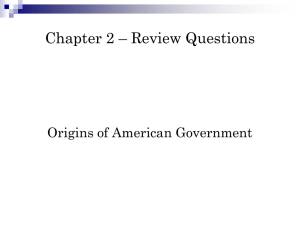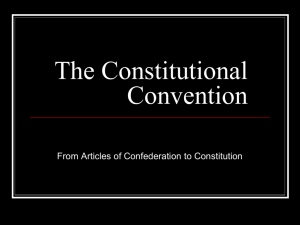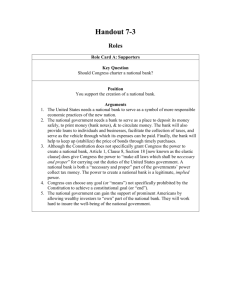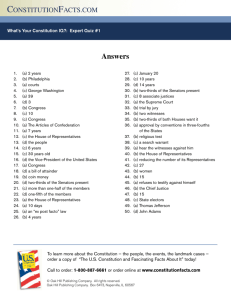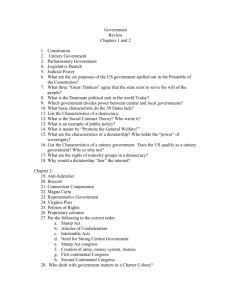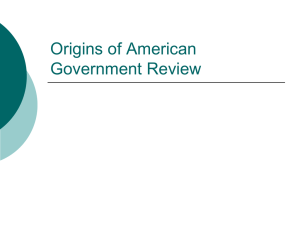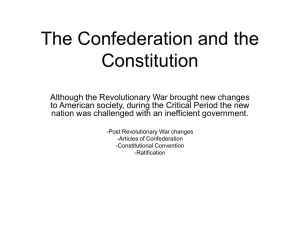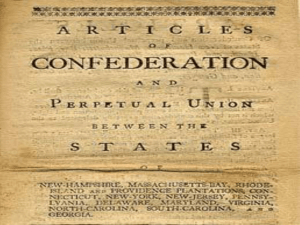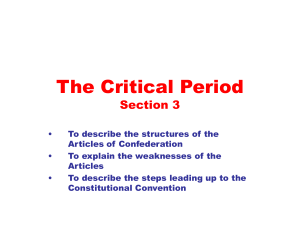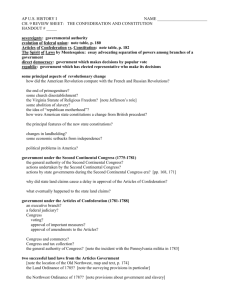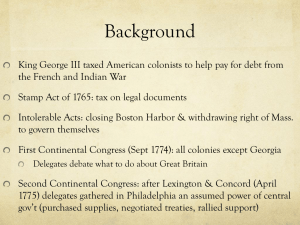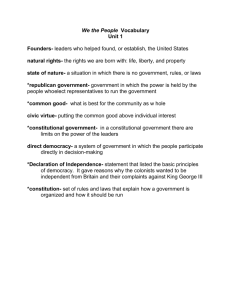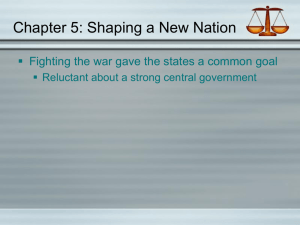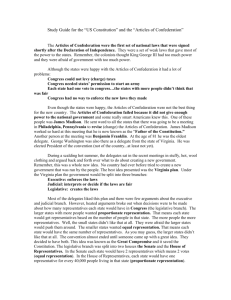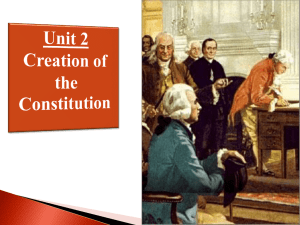Print › We the People Lessons 5
advertisement
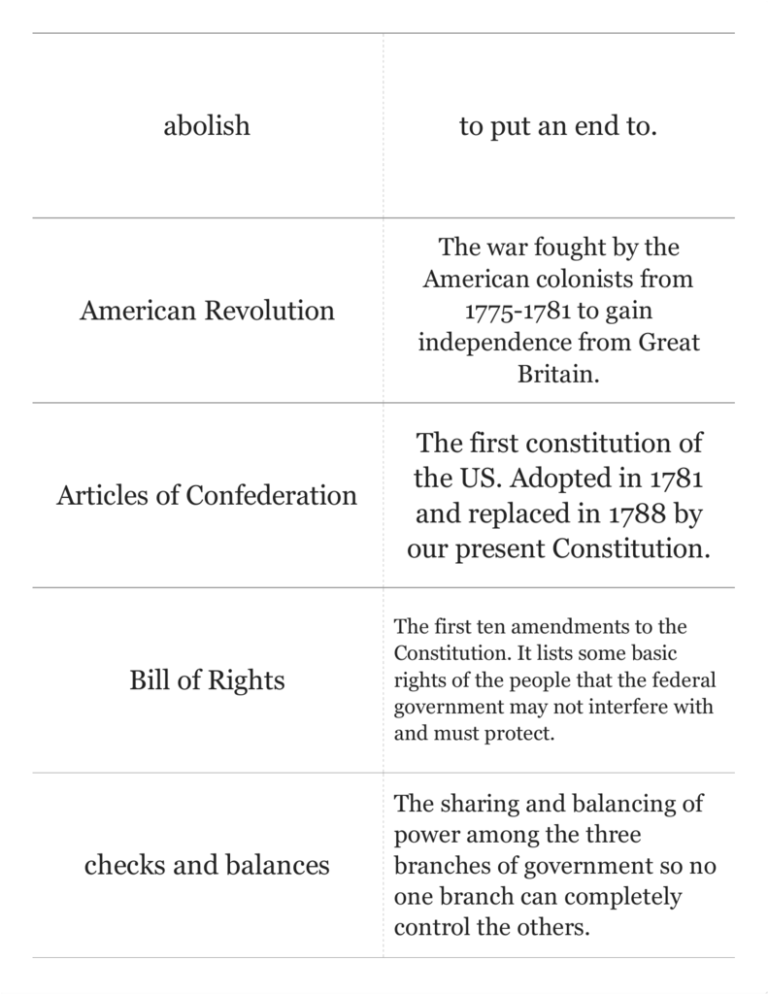
abolish to put an end to. American Revolution The war fought by the American colonists from 1775-1781 to gain independence from Great Britain. Articles of Confederation The first constitution of the US. Adopted in 1781 and replaced in 1788 by our present Constitution. Bill of Rights The first ten amendments to the Constitution. It lists some basic rights of the people that the federal government may not interfere with and must protect. checks and balances The sharing and balancing of power among the three branches of government so no one branch can completely control the others. Civil War The war between the Northern and Southern states. It took place from 1861 to 1865 and ended slavery in the US. Continental Congress The national legislature which governed the American colonies from 1774-1781 until the adoption of the Articles of Confederation. Declaration of Independence Statement that listed the basic principles of democratic government and gave reasons why the colonists wanted to free themselves from British rule. It was signed by the members of Congress on July 4, 1776. delegate A person picked to act for you or represent you, usually at a convention or a meeting. Executive Branch The branch of government that carries out the laws made by the legislative branch. Framers Great Compromise The delegates to the Philadelphia Convention of 1787. The plan accepted at the Philadelphia Convention that called for Congress to have two houses. The Senate would have two senators from each state. The House of Representatives would have representatives from each state based on population. higher law A set of laws that are superior to all other laws. For example, the US Constitution is a higher law that any federal or state law. House of Representatives One house of Congress. The number of representatives each state has is based on its population. Judicial Branch The branch of government that interprets and applies the laws and settles disputes. Legislative Branch The branch of government that makes the laws. Loyalists Americans who supported Great Britain during the American Revolution. Northwest Ordinance of 1787 A law passed by Congress under the Articles of Confederation that provided for settling the western lands and organizing new states. Patriots Americans who supported the war for independence from Great Britain. Philadelphia Convention The meeting held in Philadelphia in 1787 at which the US Constitution was written. principles rules or standards of behavior. Senate One house of Congress. Each state has two members in the Senate. separation of powers The division of powers among the legislative, executive, and judicial branches of government. Shay's Rebellion In 1786 farmers rioted against the Massachusetts government for taking away their property and jailing them for not paying their bills. State troops stopped the fight, but Americans were worried that there wasn't any national army or courts to keep order under the Articles of Confederation. three-fifths clause The Framers' compromise about slavery that became part of the Constitution. It counted each slave as three-fifths of a person to determine how many representatives a state would have in Congress.
